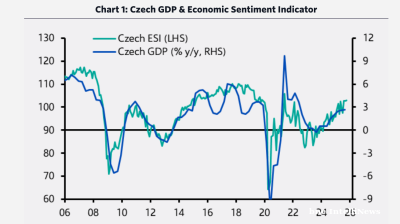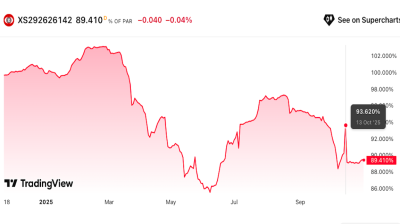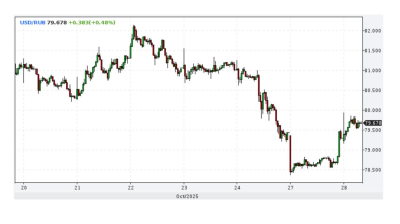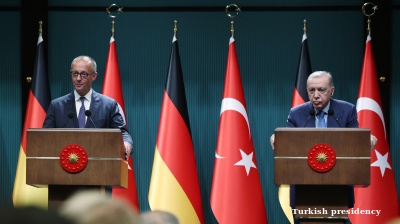The share of FX-linked deposits placed with Turkish banks stood at 54.5% of deposits as of July 29 while deposits under the state's FX-protected scheme (KKM) accounted for 16.5%, BloombergHT has reported.
Overall dollarisation stood at a fresh record high of 71% (see chart).
In 2021, indicators on the ongoing economic, political, social and, let’s say, overall turmoil in Turkey exceeded the historic financial tumult seen during the country's economic crisis of 2001, regarded as an extremely dark hour.
The situation has even overshadowed the tragedy seen at the end of the 1970s, when a several-years-long great depression in Turkey ended with the 1980 military coup that led to rule-by-junta for three years.
The next stop when looking back for grim milestones is the first half of the 1940s at the time of World War II, when bread in Turkey was rationed.
Annual inflation in Turkey remains rampant. Officially, it’s a hair’s breadth from 80%, but few Turks believe the official figures on price growth. Independent calculations in circulation put inflation at more than twice the rate posted by the Turkish Statistical Institute (TUIK, or TurkStat).
Citigroup Inc and Dutch bank ING have joined the growing number of foreign companies that have concluded hyperinflation has arrived in Turkey. Spanish bank BBVA—owner of one of Turkey’s largest banks BBVA Garanti—and British mobile phone company Vodafone in recent weeks switched to hyperinflation accounting for Turkey. Citigroup and ING last week confirmed in financial reporting that they had joined them.
"The Turkish economy is deemed to be hyperinflationary," Citigroup said.
The Turkish lira has lost around 59% of its value versus the dollar since the start of 2021.
The Erdogan administration continues to put Turkish industry and enterprise through contortions with its unorthodox approach to tackling surging inflation and the collapse of the lira. The usual approach of hiking interest rates is not allowed anywhere near the agenda. Credit-fuelled surging growth is supposed to cure all ills.
Turkey's central bank and business groups in the country, however, continue to clash over regulations that companies say mean they cannot access affordable financing.
The Turkish authorities are limiting loans to firms unless they are net exporters under an economic plan aimed at transforming the country's chronic current account deficit into a surplus.
August 3 saw the Union of Chambers and Commodity Exchanges of Turkey (TOBB) and central bank governor Sahap Kavcioglu meet over the matter.
Kavcioglu had already faced objections to the loan regulations from members of Istanbul Chamber of Industry (ISO).
Rifat Hisarciklioglu, head of TOBB, was reported by Reuters as calling on banks to extend affordable loans, saying interest rates were on an upward trend and loans were being limited. "Commercial loans at some banks have an interest rate of 30-50%, while the policy rate is at 14% and deposit rates are 20%. Some don't issue loans at all," he argued, saying the authorities needed to be "sensitive" to the "side effects" of the measures and think about the growing demands for capital due to high inflation and rising input costs.
Data

Czech growth accelerates as domestic demand-side pressure builds
The Czech economy delivered an unexpected acceleration in the third quarter, marking a clear shift from its earlier position as a regional underperformer to one of Central and Eastern Europe’s fastest-growing economies.

Eurobonds of Istanbul-listed Zorlu units offer attractive yields amid rating downgrades and no default expectation
Debut paper currently offering 14-15% yield.

Ruble strengthens as sanctioned oil companies repatriate cash
The Russian ruble strengthened after the Trump administration imposed oil sanctions on Russia’s leading oil companies, extending a rally that began after the Biden administration imposed oil sanctions on Russia in January.

Russia's central bank cuts rates by 50bp to 16.5%
The Central Bank of Russia (CBR) cut rates by 50bp on October 24 to 16.5% in an effort to boost flagging growth despite fears of a revival of inflationary pressure due to an upcoming two percentage point hike in the planned VAT rates.




